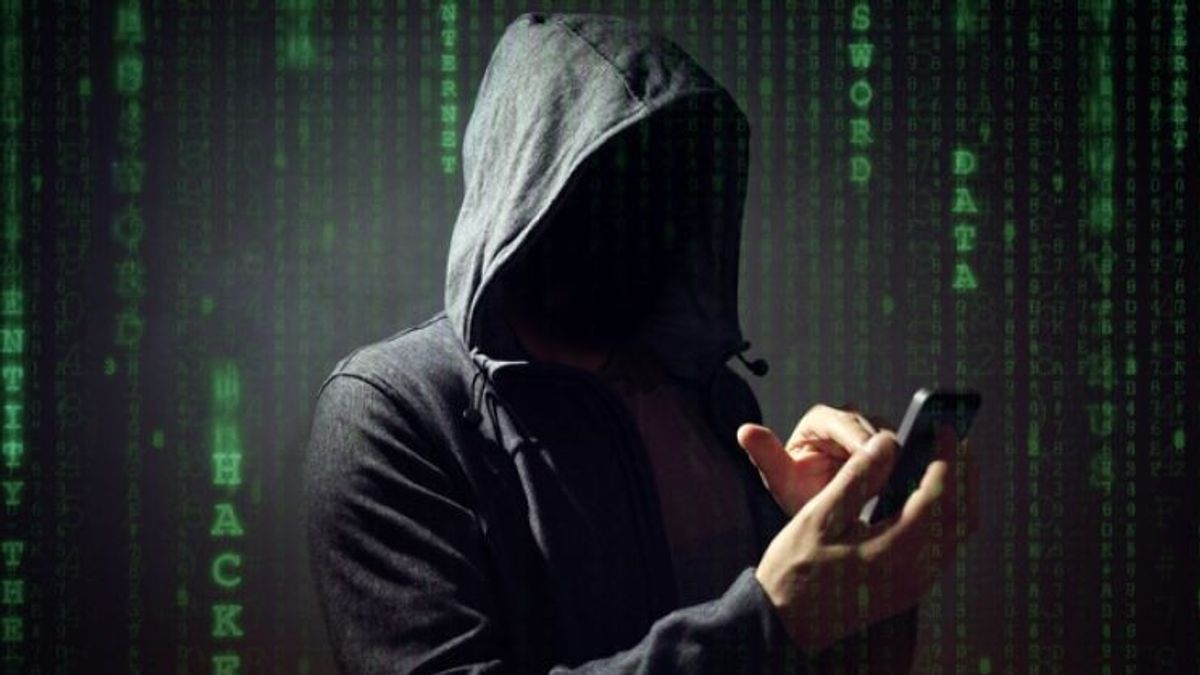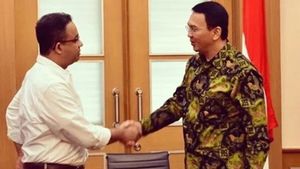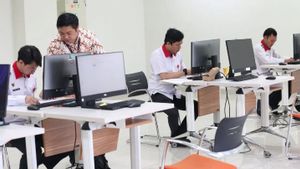JAKARTA - A political observer from the Raja Ali Haji Maritime University, Riau Archipelago, Bismar Arianto, assesses the importance of regulations governing campaigns on social media (social media) in the face of a heated political year.
According to him, due to different political choices, campaigns on social media could be offside, aka crossing the line, making it prone to conflict. Even now, he said, there is no strong regulation that covers the campaign system on social media.
"Bawaslu needs to make special regulations governing campaigning on social media to prevent or minimize these conflicts. This regulation is also an effort to close the gray space in law enforcement," said Bismar in Tanjungpinang, Riau Islands, Thursday, June 23.
Bismar said the rules of the game on social media regarding campaigning are important because they become challenges and threats that need to be answered before the 2024 General Election and Regional Head Elections.
In the era of digitalization, according to him, election and regional election contestants will increasingly use social media as a means of campaigning. Various studies show that campaigns on social media are much more effective and efficient than conventional campaigns.
It is certain that political party administrators, presidential candidates, legislative candidates, and election participants will use social media more massively as a means to socialize themselves and programs.
In addition, he continued, some academic research also found evidence that buzzers were deployed by election and regional head election participants to build an image, and undermine the image of their political rivals.
Long before the 2024 General Elections began, on June 14, 2024, Bismar said that the actions of the buzzers could already be seen in a number of social media outlets, and even went viral.
The activities of the buzzer as a team that controls social media to win certain candidates often reap hot and inappropriate comments, in addition to scathing criticism. He said that this condition has the potential to cause political conflict in the real world.
"The results of the study found a negative influence from the actions of buzzers in the community, such as the formation of certain factions or groups. In fact, these actions led to hostility and unhealthy competition. In fact, elections and local elections are aimed at producing quality leaders," he said.
Regarding this issue, Bismar believes that the space for buzzers must be limited through regulations. Campaign arrangements on social media must also address problems from downstream to upstream to create conducive elections and local elections.
"Other elements that need to be prepared are human resources who are experts in the IT field and also supporting equipment," he said.
Previously, based on an Antara report, Riau Archipelago Bawaslu member Indrawan confirmed that the campaign carried out by election participants and participants in the 2024 Simultaneous Regional Head Elections on social media was prone to conflict.
"Conflicts occur because of differences in political interests, causing other problems, such as offence and friction between support groups," said Indrawan.
The use of bad sentences, mocking or insulting each other personally by election participants and their supporters, offending ethnicity, religion, race, and intergroup (SARA), and other negative things have the potential to turn conflicts in cyberspace into the real world. In fact, such conditions do not need to occur if all participants in the 2024 Simultaneous General Election and Regional Head Elections can exercise self-restraint and respect each other.
Debates in social media groups such as WhatsApp and Facebook tend to heat up because one party or each party defends an argument or perception. Not to mention the problems that arise due to fake accounts, which participate in the debate, and tend to be provocative.
"That's the experience of the results of the supervision of the 2019 Election and the 2020 Regional Head Election," he said again.
Indrawan said that social media and cyber media have the potential to be the main tools used by participants in the 2024 Election for campaigning, because the implementation of the campaign stages in the 2024 Election is estimated to be shorter than the previous election.
The 2024 election campaign period is estimated to be only 75 days, while in the 2019 election it will reach 90 days. The voting stage will be held on February 14, 2024, so that the campaign stage ends on February 10, 2024 or before entering the quiet period.
"This means that the campaign stage will begin in December 2023," he added.
The relatively short campaign period is likely to be used by campaign participants by socializing themselves and the program through social media and cyber media.
"Because social media and cyber media are considered to have a wider reach, and are more efficient," he said.
The English, Chinese, Japanese, Arabic, and French versions are automatically generated by the AI. So there may still be inaccuracies in translating, please always see Indonesian as our main language. (system supported by DigitalSiber.id)













